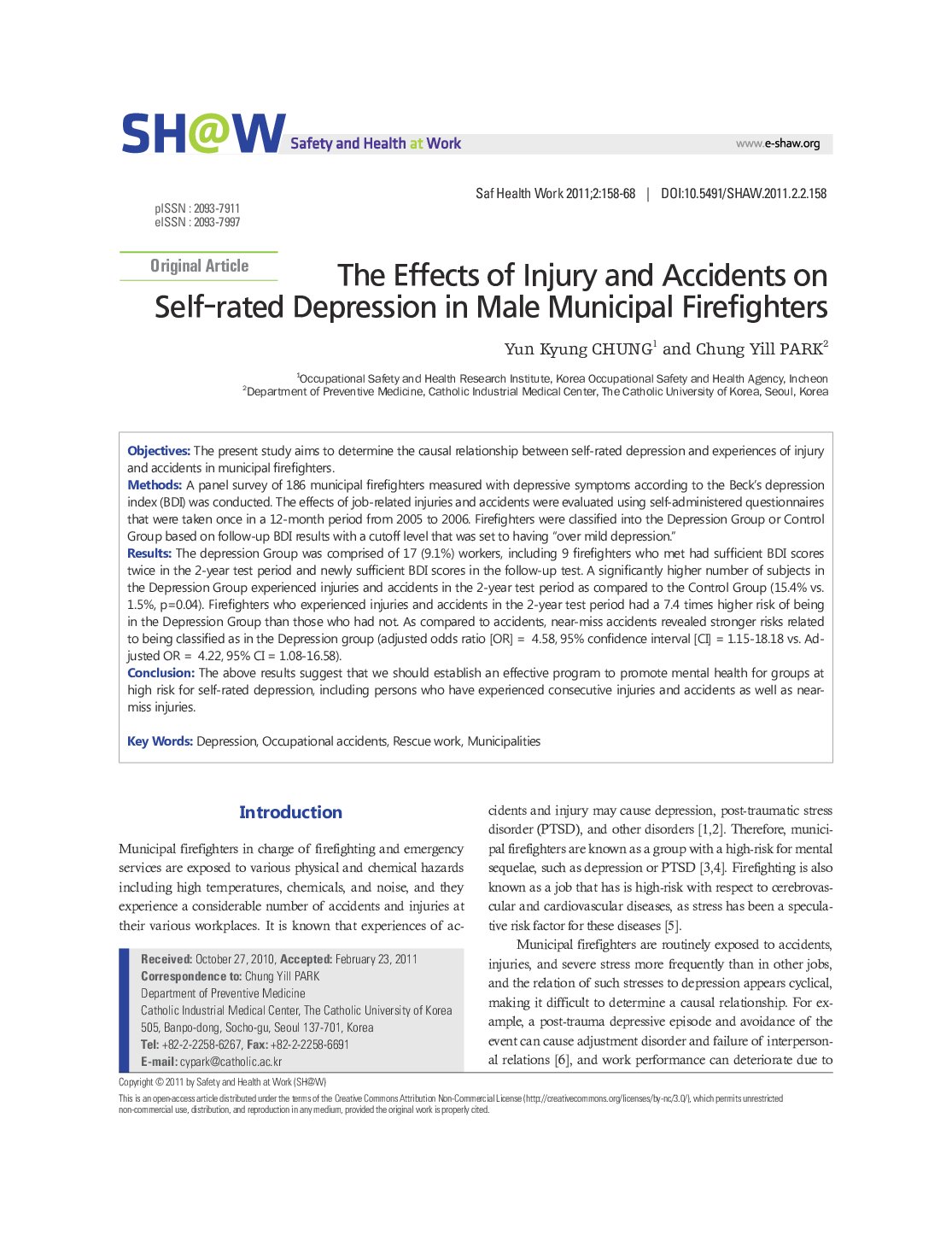| Article ID | Journal | Published Year | Pages | File Type |
|---|---|---|---|---|
| 1092278 | Safety and Health at Work | 2011 | 11 Pages |
Objectives: The present study aims to determine the causal relationship between self-rated depression and experiences of injury and accidents in municipal firefighters.Methods: A panel survey of 186 municipal firefighters measured with depressive symptoms according to the Beck’s depression index (BDI) was conducted. The effects of job-related injuries and accidents were evaluated using self-administered questionnaires that were taken once in a 12-month period from 2005 to 2006. Firefighters were classified into the Depression Group or Control Group based on follow-up BDI results with a cutoff level that was set to having “over mild depression.”Results: The depression Group was comprised of 17 (9.1%) workers, including 9 firefighters who met had sufficient BDI scores twice in the 2-year test period and newly sufficient BDI scores in the follow-up test. A significantly higher number of subjects in the Depression Group experienced injuries and accidents in the 2-year test period as compared to the Control Group (15.4% vs. 1.5%, p=0.04). Firefighters who experienced injuries and accidents in the 2-year test period had a 7.4 times higher risk of being in the Depression Group than those who had not. As compared to accidents, near-miss accidents revealed stronger risks related to being classified as in the Depression group (adjusted odds ratio [OR] = 4.58, 95% confidence interval [CI] = 1.15-18.18 vs. Adjusted OR = 4.22, 95% CI = 1.08-16.58).Conclusion: The above results suggest that we should establish an effective program to promote mental health for groups at high risk for self-rated depression, including persons who have experienced consecutive injuries and accidents as well as near- miss injuries.
